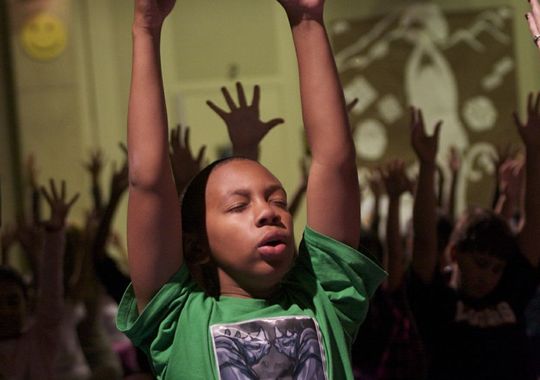|
"We're going to take a quick voyage over the cognitive history of the 20th century, because during that century our minds have altered dramatically...We've gone from people who confronted a concrete world, and analyzed that world primarily in terms of how much it would benefit them...to people who confront a very complex world...and it's a world where we've had to develop new mental habits, new habits of mind..." "The 20th century has shown enormous cognitive reserves in ordinary people that we have now realized. And the aristocracy was convinced that the average person couldn't make it, that they could never share their mindset, or their cognitive abilities..."
Recent high school grad talking about real change...this is beautiful. A program I've been very fortunate to be a part of this past year--Youth Empowerment Seminar (YES! for Schools)--getting a shout-out in the USA TODAY. Awesome.
Read the full article here. I had seen this video once before--before the thought of teaching had even entered my mind. It's a funny talk, and Sir Robinson's ideas certainly resonated with me, as someone whose exposure to education philosophy was limited to Seth Godin. I was recently asked to watch this video for one of my grad courses at Drexel; to say the least, I viewed it through a much different lens this time. "Mr. Buckley's Class" "Simplest Form" Recently I've been starting my days off with breakfast and a TED talk. This one really resonated with me. Three lessons for what we should emphasize in teaching today: 1) experiential learning 2) student voice 3) embracing failure |
jun·ta
Archives
February 2015
Categories
All
|

 RSS Feed
RSS Feed
